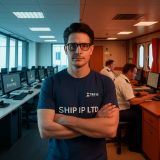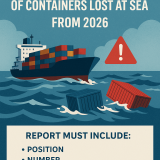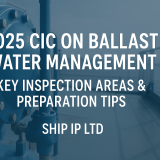The Seafarer COVID-19 Welfare Survey announced recently by The Bahamas Maritime Authority (BMA) has already garnered very high levels of support from maritime organisations and seafarers themselves. But the initial responses received from seafarers are demonstrating that the vast majority, 87%, are still to receive a first vaccine.
Of the respondents to date, 86% would be willing to have the vaccine if offered and 65% would feel safer if they had been vaccinated. Initial results also show that more than half of those who have been at sea during the pandemic have been impacted in terms of shore leave and ability to get on or off the vessel. These are very much based on first responses and researchers are receiving many more on a daily basis.
The BMA and researchers at the University of Washington School of Public Health have thankeded the organisations which have shared this initiative with their members to allow the survey to reach as many seafarers as possible. Among the first organisations to support the initiative are international shipping organisations from government bodies, institutes, owners and operators, charitable bodies to other ship registries and a number of major maritime companies. However, The BMA is receiving more support on a daily basis.
The aim of the survey is to accurately collect information from front-line seafarers (who will remain anonymous throughout), specifically focusing on their mental health needs before and during the pandemic. The data collected will be analysed and used to understand the challenges our seafarers experienced in order to develop effective solutions that raise awareness and guide international efforts to improve the livelihoods of those who choose to serve at sea.
The electronic survey itself is simple to complete and takes about 10 minutes. All results will be kept confidential at the University of Washington and respondents can choose not to answer any question with which they are uncomfortable. To maximise uptake, The BMA has approached a number of key industry bodies to support and raise awareness of the initiative, giving as many seafarers as possible the opportunity to participate and contribute towards this endeavour.
Tom Jenkins, Deputy Director and Head of The BMA’s Investigations Department, was responsible for implementing the survey. “I would like to thank every single person who has helped to share our Seafarer COVID-19 Welfare Survey. The COVID-19 pandemic has impacted everyone, and we would like to ensure that every seafarer has the opportunity to express their thoughts about how they have been affected. The results of the survey will help the industry to formulate the support identified as necessary by seafarers themselves.”















